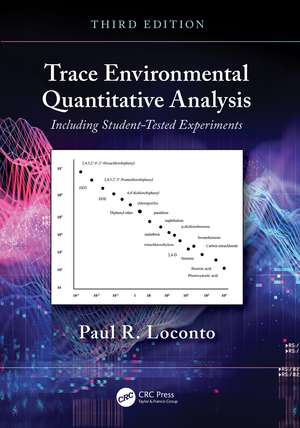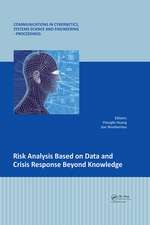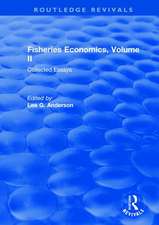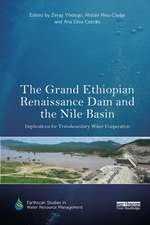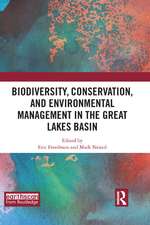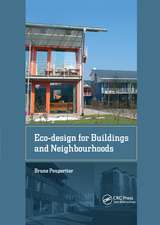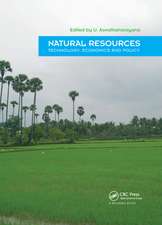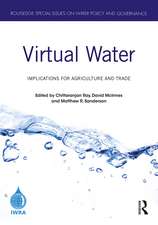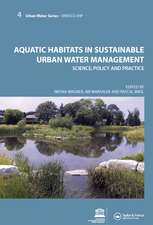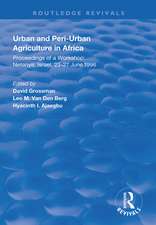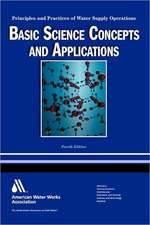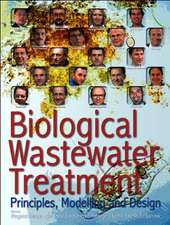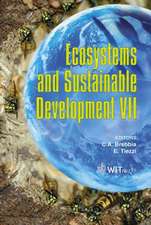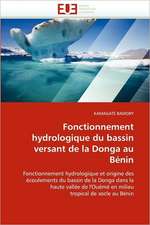Trace Environmental Quantitative Analysis: Including Student-Tested Experiments
Autor Paul R. Locontoen Limba Engleză Paperback – 29 ian 2024
Key Features:
- Fundamental principles are introduced for the more significant experimental approaches to sample preparation
- Principles of instrumental analysis (determinative techniques) for trace organics and trace inorganics analysis
- An introduction to the statistical treatment of trace analytical data
- How to calculate instrument detection limits based on weighted least squares confidence band calibration statistics
- Includes an updated series of student-tested experiments
| Toate formatele și edițiile | Preț | Express |
|---|---|---|
| Paperback (1) | 585.27 lei 6-8 săpt. | |
| CRC Press – 29 ian 2024 | 585.27 lei 6-8 săpt. | |
| Hardback (1) | 1209.56 lei 6-8 săpt. | |
| CRC Press – 28 dec 2020 | 1209.56 lei 6-8 săpt. |
Preț: 585.27 lei
Preț vechi: 688.56 lei
-15% Nou
Puncte Express: 878
Preț estimativ în valută:
111.99€ • 117.17$ • 93.03£
111.99€ • 117.17$ • 93.03£
Carte tipărită la comandă
Livrare economică 02-16 aprilie
Preluare comenzi: 021 569.72.76
Specificații
ISBN-13: 9780367631062
ISBN-10: 0367631067
Pagini: 766
Ilustrații: 400
Dimensiuni: 178 x 254 mm
Greutate: 0.45 kg
Ediția:3
Editura: CRC Press
Colecția CRC Press
ISBN-10: 0367631067
Pagini: 766
Ilustrații: 400
Dimensiuni: 178 x 254 mm
Greutate: 0.45 kg
Ediția:3
Editura: CRC Press
Colecția CRC Press
Public țintă
Academic, Professional, and Professional Practice & DevelopmentCuprins
Preface to the Third Edition. About the Author. About the Contributors. Chapter 1 Introduction to Trace Environmental Quantitative Analysis (TEQA). Chapter 2 Calibration, Verification, Quantification, Statistical Treatment of Analytical Data, Detection Limits, and Quality Assurance/ Quality Control. Chapter 3 Sample Preparation Techniques to Isolate and Recover Organics and Inorganics. Chapter 4 Determinative Techniques to Measure Organics and Inorganics. Chapter 5 Student- Tested Laboratory Experiments. Appendix A: Glossary. Appendix B: QA/ QC Illustrated. Appendix C: A Primer on the Basics of Probability and Statistics for Some and a Quick Review for Others. Appendix D: Quality Control for Environmental- Health TEQA: Levey– Jennings Plots and Westgard Rules. Appendix E: Innovative Sample Prep Flow Charts for TEQA. Appendix F: Quantitating VOCs in Serum Using Automated Headspace-SPME/ Cryo- Focusing/ Isotope Dilution/ Capillary GC-MS. Appendix G: Using a Pooled Standard Deviation to Find the Uncertainty in the Percent Recovery for the Priority Pollutant Phenol Using Reversed- Phase SPE from Spiked Water by Converting Phenol to its Pyrazol- 3- One Complex: Comparing In Situ vs. Synthesized Experimental Approaches. Appendix H: Laboratory Glass & Instrument Designs. Appendix I: Useful Potpourri for Environmental Analytical Chemists. Appendix J: Contributing Authors: Brief Introduction. Index.
Notă biografică
Paul R. Loconto holds a PhD. in analytical chemistry and an MS in physical chemistry. He has published 35 peer-reviewed papers in analytical chemistry and in chemical education. He has given over 40 talks and poster presentations at various workshops, meetings, and conferences.
After brief stints at the American Cyanamid Co., Stamford, CT, and the Dow Chemical Co., Midland, MI, in 1974, Dr. Loconto began teaching introductory, environmental, general and organic chemistry at Dutchess Community College, Poughkeepsie, NY. He joined NANCO Environmental Services in Wappingers Falls, NY, as R&D manager in 1986. In 1990, he joined the Michigan Biotechnology Institute in Lansing. In 1992, he became the laboratory manager for the graduate program in Environmental Engineering at Michigan State University, East Lansing, where he conducted analytical method development for both the NIEHS analytical core and the EPA Hazardous Substance Research Center while coordinating the development of an instructional analytical laboratory for the graduate school.
In 2001, he joined the Michigan Department of Community Health, Bureau of Laboratories, as a Laboratory Scientist Specialist. Here, in addition to training new employees on how to use GC-MS, GC-MS/MS, and GC-AED instruments, as well as SPE sample prep techniques, he taught co-workers how to satisfy QA/QC requirements. He focused on developing analytical methods for biomonitoring while conducting trace quantitative analysis in support of the Laboratory Response Network for the U.S. Centers for Disease Control and Prevention (CDC).
He retired in late 2013, yet continues as a consultant, educator, and writer.
After brief stints at the American Cyanamid Co., Stamford, CT, and the Dow Chemical Co., Midland, MI, in 1974, Dr. Loconto began teaching introductory, environmental, general and organic chemistry at Dutchess Community College, Poughkeepsie, NY. He joined NANCO Environmental Services in Wappingers Falls, NY, as R&D manager in 1986. In 1990, he joined the Michigan Biotechnology Institute in Lansing. In 1992, he became the laboratory manager for the graduate program in Environmental Engineering at Michigan State University, East Lansing, where he conducted analytical method development for both the NIEHS analytical core and the EPA Hazardous Substance Research Center while coordinating the development of an instructional analytical laboratory for the graduate school.
In 2001, he joined the Michigan Department of Community Health, Bureau of Laboratories, as a Laboratory Scientist Specialist. Here, in addition to training new employees on how to use GC-MS, GC-MS/MS, and GC-AED instruments, as well as SPE sample prep techniques, he taught co-workers how to satisfy QA/QC requirements. He focused on developing analytical methods for biomonitoring while conducting trace quantitative analysis in support of the Laboratory Response Network for the U.S. Centers for Disease Control and Prevention (CDC).
He retired in late 2013, yet continues as a consultant, educator, and writer.
Descriere
A thorough and timely update, this new edition presents principles, techniques and applications in this sub-discipline of analytical chemistry for quantifying traces of potentially toxic organic and inorganic chemical substances found in air, soil, fish and water as well as serum, plasma, urine, and other body fluids.
